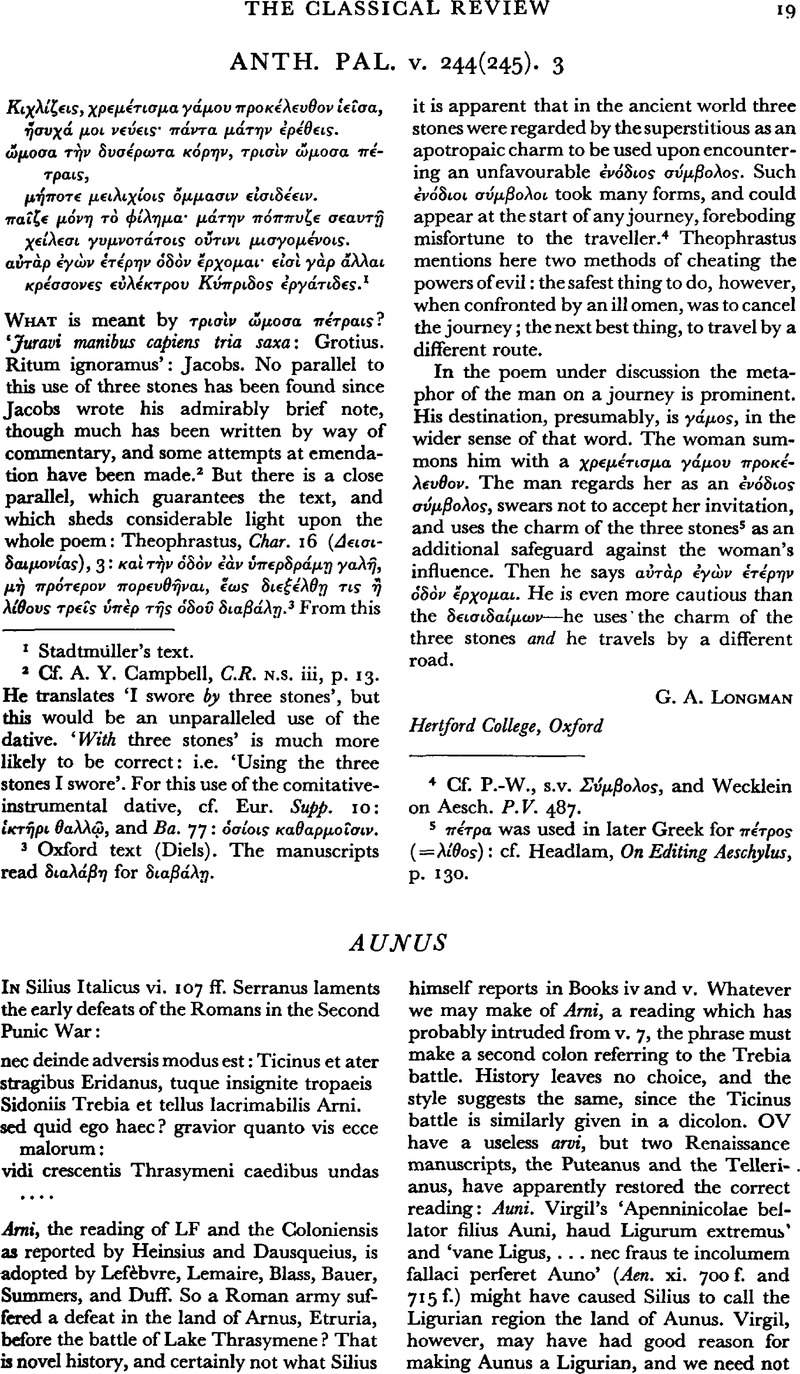No CrossRef data available.
Article contents
Anth. Pal. v. 244(245). 3
Published online by Cambridge University Press: 13 February 2009
Abstract

- Type
- Review Article
- Information
- Copyright
- Copyright © The Classical Association 1955
References
1 Stadtmuller's text.
2 Cf. Campbell, A. Y., C.R. N.S. iii, p. 13Google Scholar. He translates ‘I swore by three stones’, but this would be an unparalleled use of the dative. ‘With three stones’ is much more likely to be correct: i.e. ‘Using the three stones I swore’. For this use of the comitativeinstrumental dative, cf. Eur. Supp. 10: ἰκτ⋯ρι θαλλῷ, and Ba. 77: ⋯σ⋯οις καθαρμοῖΣιν.
3 Oxford text (Diels). The manuscripts read διαλ⋯βη for διαβ⋯λ⋯.
4 Cf. P.-W., s.v. Σ⋯μβολος, and Wecklein on Aesch. P.V. 487.
5 π⋯τρα was used in later Greek for π⋯τρος(=λ⋯θος): cf. Headlam, , On Editing Aeschylus, p. 130Google Scholar.


